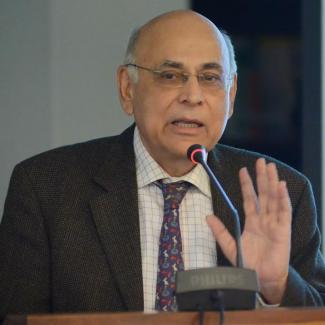Outsourcing state capacity: A field experiment in Pakistan
Effective state institutions are known to be important for growth. At the same time, a large proportion of donor assistance and public service spending is now channelled through non- government organisations (NGOs). This raises issues of how these institutions interact with the traditional institutions of the state: do they complement the development of effective state institutions, or do they substitute for it, perhaps even reducing its effectiveness in the long run? Can their capture by elites be avoided more than by traditional state institutions? Can their performance be improved through accountability to their donors and/or to the public? A better understanding of these issues is critical to guide policy on whether and how funding should be channelled through NGOs, as opposed to traditional state institutions.
This project is a large-scale field experiment with 850 local NGOs spread across Pakistan. The project is being conducted in collaboration with the Pakistan Poverty Alleviation Fund (PPAF), which is an apex institution supporting community-driven development initiatives all over Pakistan.
These local NGOs, also known as Local Support Organisations (LSOs), all operate under similar organisational and operational rules; they are mature ‘apex’ organisations covering a Union Council, each typically serving several thousand households. These NGOs are active in a range of sectors, carrying out services from building schools or bridges, to resolving teacher attendance problems, to giving stipends to poor families, to resolving disputes between different families or clans. Some work together with the government or advocate for government service provision, while others work independently to assist their communities directly.
The large number of organizations working under PPAF support creates principal-agent problems for PPAF. In particular, PPAF wants to encourage these local NGOs to expand service delivery, and to be more inclusive of women and underrepresented groups in their governance and their beneficiary selection. At the same time, PPAF wants the organisations to retain the flexibility to respond to local needs. Ideally, PPAF’s engagement could become more “hands-off” as these local NGOs become more mature and independent.
One means to this is to ask them to regularly report their own progress and achievements (“self- reporting”), rather than having achievements reported primarily by staff of the donor after field visits (“monitoring”). Another means is to offer them non-financial incentives in the form of a recognition package, as these are voluntary organisations that may be motivated by social praise especially within their own community. This experiment aims to test the impact of both ‘self- reporting’ and ‘non-financial incentives’ on the governance and service delivery performance of these NGOs. The findings from this project will help PPAF and its partner organisations devise and revise their engagement strategies with these local NGOs such that they are more effective in serving their community, along with being sustainable on their own in the long run.






